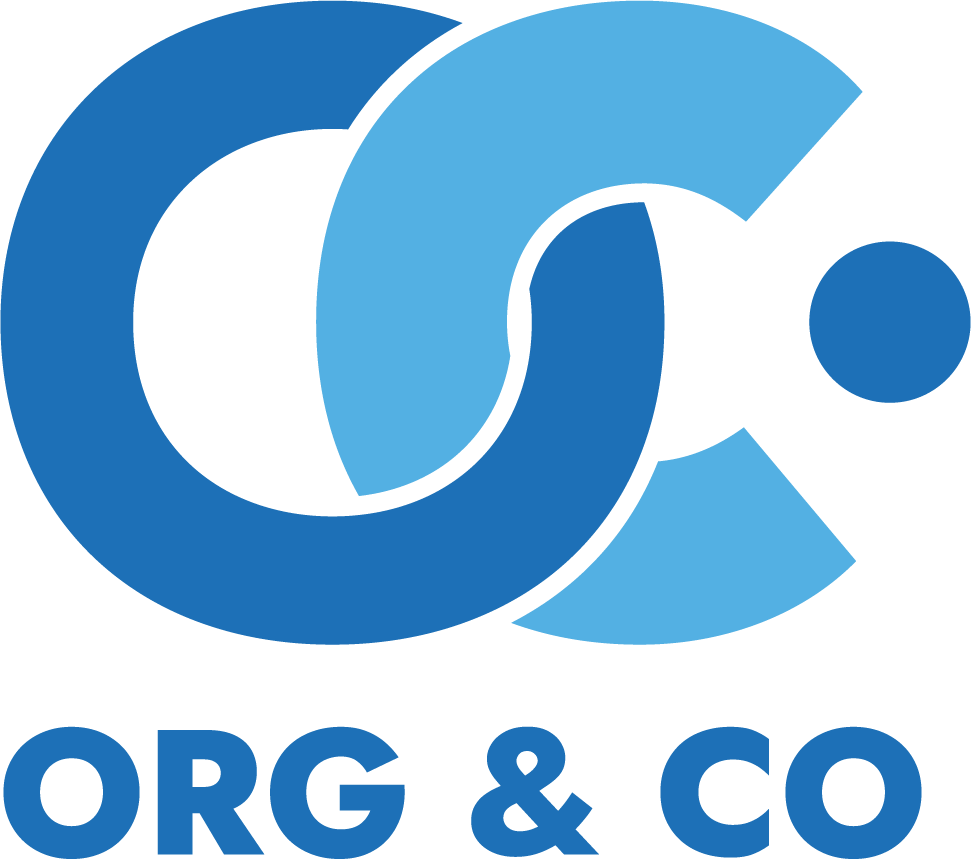[AAC] Capitalization and the Start-Up Economy
For the past twenty years, social sciences have studied financialization as a process affecting many (if not almost all) aspects of contemporary societies (e.g. Leyshon and Thrift 2007). More recently, research at the crossroads of sociology, economics and the science and technology studies (STS) developed a new understanding of financialization, centered on how “things are turned into assets” (Birch 2017; Birch and Muniesa 2020; Langley 2020; Birch, Cochrane, and Ward 2021; Tellmann 2022). Building on this perspective, Birch and Muniesa (2020) argue that the main driving form of capitalism is no longer commodities and markets, but rather investments and assets. Such a perspective provides useful tools for critically examining the emergence of venture capitalism and the start-up economy. Yet, several authors note that there is still a lack of research on private financing: private equity, venture capital, etc. (Leyshon and Thrift 2007; Langley and Leyshon 2017; Muniesa and Doganova 2020). Therefore, the aim of this workshop is to bring together different perspectives to critically examine the start-up economy and emerging business practices related to venture capital funding.
Drawing on Doganova and Muniesa’s (2015; Muniesa et al. 2017) work, we suggest approaching capitalization as an operation that aims on the one hand to supply money to a business so that it can develop or operate, while, on the other hand, turning it into a potential return on investment. We want to explore how the start-up economy works from the point of view of financing practices. How do these practices shape entrepreneurial projects (Cooiman 2022)? Where do they take place? What conceptions of capitalism do they convey? How do they shape not only imaginations, but also relationships to the future (Geiger 2020)? What criticisms or controversies do they raise, if any?
This workshop aims to bring together scholars from science and technology studies and beyond who work to develop a transversal perspective across various cultural sites and practices. Through different formats (keynote, round table, panels), the workshop will offer a setting to conduct in-depth discussions on capitalization. Our goal is to set up a collective a special issue in early 2025.
Subject areas
Papers may be submitted in any of the following three subject areas:
Unfolding Capitalization Practices: Sites, Devices and Knowledge
This subject area is interested in the way in which “investment chains” (Cooiman 2023) are forged in the platform economy. Where do these decisions take place? What devices and forms of knowledge are mobilized (Doganova and Eyquem-Renault 2009; Birch 2023)? We invite proposals that seek to unfold the politics of investment practices and consider capital as a collective, situated performance. Considering capitalization practices as « political technology » (Muniesa 2017), we would like to explore how they contribute to enacting what is valuable and what is not, and what entrepreneurial projects may or may not exist. These proposals might, for example, focus on funding rounds, the work of venture capitalists and, more broadly, all the categories and tools that inform and are part of investment decisions.
Capitalization of Everyday Life: Brands, Goods and Services
The second subject area is interested in the spread of start-up financing models beyond the exclusive domain of technology focused start-ups. While commodities have usually been central in classic understandings of capitalism, consumption has been relatively absent so far from debates on assetization. How to approach the start-up model beyond tech and data only? How are consumer goods or services transformed into assets, and is this similar to the assetization of technologies, data or infrastructure? How do consumers or consumption practices become financially valuable for start-ups and investors? How do devices such as brands, platforms or NFTs contribute to creating value around/with consumption? How does the start-up entrepreneurial model redefine consumer goods industries like fashion, cosmetics and agri-food (Schneider 2018; Fairbairn, Kish, and Guthman 2022; Heimstädt 2023), as well as automotive, manufacturing, travel (Bruni and Esposito 2019; Bosma 2022) and cultural industries (Watson and Leyshon 2022; Riom 2023)? Are venture capitalists approaching investment in these sectors in the same way as in the tech sectors? We would also like to explore the value of start-ups themselves and the various elements that attest to it: brand, skill and staff (Moor and Lury 2011). Proposals may also address resistance, controversies and criticism of these innovation models.
Capitalization Reconsidered: Theories and Methods.
The final subject area centers on the conceptual and methodological aspects of studying the start-up economy. Proposals could, for example, discuss the various concepts used in the literature: assetization, capitalization, financialization and biocapital. In what ways can these aspects inform a broader theorization of values or valuation, or call for its further refinement? What are the possible intersections between STS, political economy and organization studies? Proposals could also address methodological issues, such as access to the field, and how to study investors or the financing of start-ups.
Confirmed Keynotes
- Liliana Doganova, Mines ParisTech.
- Kean Birch, York University, Canada
- Paul Langley, Durham University, UK.
Submission Formats
Paper proposals should be submitted via this form by 15 February 2024. Proposals should be written in English and include the name and contact details (email address and affiliation) of the authors, the title of the proposal and an abstract of 250 to 400 words.
Important Dates
- 15 February 2024: Deadline for abstract submissions
- 15 March 2024: Notification of acceptance or rejection
- 15 April 2024: Publication of the workshop program
- 20 – 21 June 2024: Workshop
Organization Committee
- Loïc Riom, University of Lausanne
- Tanja Schneider, University of St-Gallen
References
- Birch, Kean. 2017. “Rethinking Value in the Bio-Economy: Finance, Assetization, and the Management of Value.” Science, Technology, & Human Values 42 (3): 460–90. https://doi.org/10.1177/0162243916661633.
- ———. 2023. “Reflexive Expectations in Innovation Financing: An Analysis of Venture Capital as a Mode of Valuation.” Social Studies of Science 53 (1): 29–48. https://doi.org/10.1177/03063127221118372.
- Birch, Kean, D. T. Cochrane, and Callum Ward. 2021. “Data as Asset? The Measurement, Governance, and Valuation of Digital Personal Data by Big Tech.” Big Data & Society 8 (1): 20539517211017308.
- Birch, Kean, and Fabian Muniesa, eds. 2020. Assetization: Turning Things into Assets in Technoscientific Capitalism. Cambridge, MA: MIT Press.
- Bosma, Jelke R. 2022. “Platformed Professionalization: Labor, Assets, and Earning a Livelihood through Airbnb.” Environment and Planning A: Economy and Space 54 (4): 595–610.
- Bruni, Attila, and Fabio Maria Esposito. 2019. “It Obliges You to Do Things You Normally Wouldn’t: Organizing and Consuming Private Life in the Age of Airbnb.” PARTECIPAZIONE E CONFLITTO 12 (3): 665–90.
- Cooiman, Franziska. 2022. “Imprinting the Economy: The Structural Power of Venture Capital.” Environment and Planning A: Economy and Space, November, 0308518X221136559. https://doi.org/10.1177/0308518X221136559.
- ———. 2023. “Veni Vidi VC – the Backend of the Digital Economy and Its Political Making.” Review of International Political Economy 30 (1): 229–51. https://doi.org/10.1080/09692290.2021.1972433.
- Doganova, Liliana, and Marie Eyquem-Renault. 2009. “What Do Business Models Do?: Innovation Devices in Technology Entrepreneurship.” Research Policy 38 (10): 1559– 70.
- Doganova, Liliana, and Fabian Muniesa. 2015. “Capitalization Devices: Business Models and the Renewal of Markets.” In Making Things Valuable, edited by Martin Kornberger, Lise Justesen, Anders Koed Madsen, and Jan Mouritsen, 109–25. Oxford University Press. https://hal-mines-paristech.archives-ouvertes.fr/hal-01212438.
- Fairbairn, Madeleine, Zenia Kish, and Julie Guthman. 2022. “Pitching Agri-Food Tech: Performativity and Non-Disruptive Disruption in Silicon Valley.” Journal of Cultural Economy 15 (5): 652–70. https://doi.org/10.1080/17530350.2022.2085142.
- Geiger, Susi. 2020. “Silicon Valley, Disruption, and the End of Uncertainty.” Journal of Cultural Economy 13 (2): 169–84.
- Heimstädt, Cornelius. 2023. “The Exploratory Assetization of a Crop Protection App.” Environmental Science & Policy 140 (February): 242–49. https://doi.org/10.1016/j.envsci.2022.12.014.
- Langley, Paul. 2020. “Assets and Assetization in Financialized Capitalism.” Review of International Political Economy, October, 1–12. https://doi.org/10.1080/09692290.2020.1830828.
- Langley, Paul, and Andrew Leyshon. 2017. “Platform Capitalism: The Intermediation and Capitalisation of Digital Economic Circulation.” Finance and Society. 3 (1): 11–31.
- Leyshon, Andrew, and Nigel Thrift. 2007. “The Capitalization of Almost Everything: The Future of Finance and Capitalism.” Theory, Culture & Society 24 (7–8): 97–115.
- Moor, Liz, and Celia Lury. 2011. “Making and Measuring Value: Comparison, Singularity and Agency in Brand Valuation Practice.” Journal of Cultural Economy 4 (4): 439–54.
- Muniesa, Fabian. 2017. “On the Political Vernaculars of Value Creation.” Science as Culture 26 (4): 445–54.
- Muniesa, Fabian, and Liliana Doganova. 2020. “The Time That Money Requires: Use of the Future and Critique of the Present in Financial Valuation.” Finance and Society 6 (2): 95–113. https://doi.org/10.2218/finsoc.v6i2.5269.
- Muniesa, Fabian, Liliana Doganova, Horacio Ortiz, Álvaro Pina-Stranger, Florence Paterson, Alaric Bourgoin, Véra Ehrenstein, Pierre-André Juven, David Pontille, and Basak Saraç- Lesavre. 2017. Capitalization: A Cultural Guide. Paris: Presses des Mines.
- Riom, Loïc. 2023. “‘A Video or a Flat Fee?’ On the Performances of Concert Fees.” Journal of Cultural Economy. https://doi.org/10.1080/17530350.2023.2225525 / RJCE-2022- 0042.
- Schneider, Tanja. 2018. “Capitalising on Curiosity: Captation Devices and Their Affective Capacity to Attract Publics and Assemble Markets.” Science as Culture 27 (4): 569–72. https://doi.org/10.1080/09505431.2018.1523884.
- Tellmann, Ute. 2022. “The Politics of Assetization: From Devices of Calculation to Devices of Obligation.” Distinktion: Journal of Social Theory 23 (1): 33–54. https://doi.org/10.1080/1600910X.2021.1991419.
- Watson, Allan, and Andrew Leyshon. 2022. “Negotiating Platformisation: MusicTech, Intellectual Property Rights and Third Wave Platform Reintermediation in the Music Industry.” Journal of Cultural Economy 15 (3): 326–43. https://doi.org/10.1080/17530350.2022.2028653.


